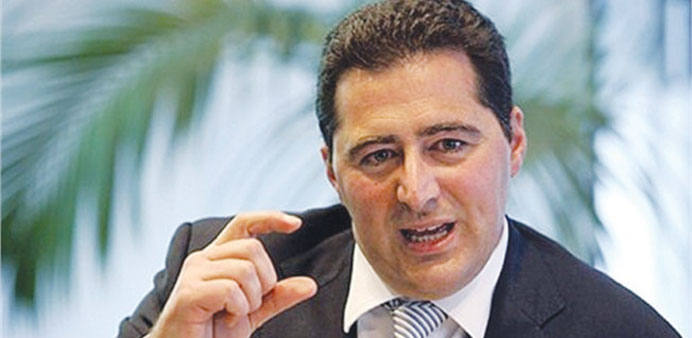DPA/Zurich
Term limits for the president and other top officials and a complete overhaul of the executive committee are top of a list of reform proposals for the ruling football body FIFA, presented yesterday by chief adviser Domenico Scala.
Scala, the chairman of the Audit and Compliance Committee, said that FIFA top officials being in their position for too long and the current look of the executive are part of the problems FIFA faces at the moment.
“A number of issues have their root cause in the fact that people have stayed for far too long,” Scala said.
Scala spoke of “an urgent necessity for further reform” and said the rather unusual act of transparency with his report needed to be continued because the reform process is crucial for the future of FIFA.
Scala presented his ideas to a FIFA reform commission last week, and asked the commission headed by former top Olympic official Francois Carrard to be “as thorough and transparent as possible” in their work.
FIFA has been hit by corruption allegations in various areas, with seven officials arrested just ahead of the May 29 congress as part of an American probe, including two FIFA vice-presidents at the time. There is also a Swiss probe into the bid process and election of the 2018 (Russia) and 2022 (Qatar) hosts.
Joseph Blatter was re-elected president at May 29 congress for a fifth term but said four days later he will step down. A new president is to elected on February 26, 2016, at an extraordinary congress.
Blatter has been in office for 17 years, five years and two terms longer than Scala’s proposal which with the 12 year limit follows the example set by the International Olympic Committee in its reform at the turn of the century.
Other top officials beyond the 12-year limit include Issa Hayatou (25 years), Angel Maria Villar Llona (17) and the favourite to succeed Blatter, Michel Platini (14).
Term limits (and an age limit which is not proposed by Scala) were rejected by the 2014 congress.
Looking at the executive committee, Scala said on the report that “the executive committee in its present form needs to be split into two different bodies: A governing board dedicated to strategic issues, and a management board entrusted with business management.”
Scala wants future executive committee members elected by congress as well as stricter integrity checks for leading officials and disclosure of their compensations.
Scala said the current executive was too powerful and that other problems included officials holding two or three functions via FIFA, confederations and member associations.
He said “the FIFA executive committee and its members have a collective and individual responsibility, or duty, to address these risks and/or problem areas.”

FIFA adviser Domenico Scala
